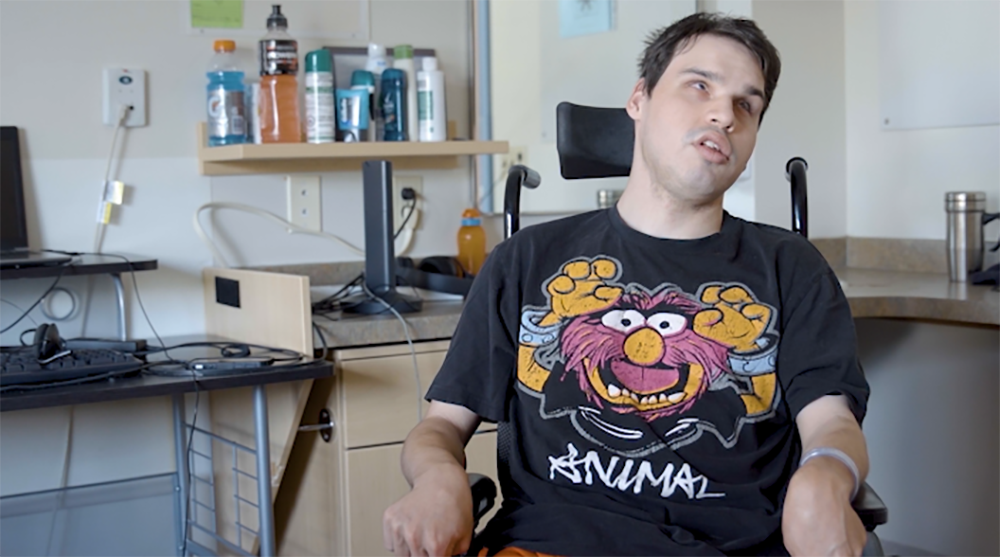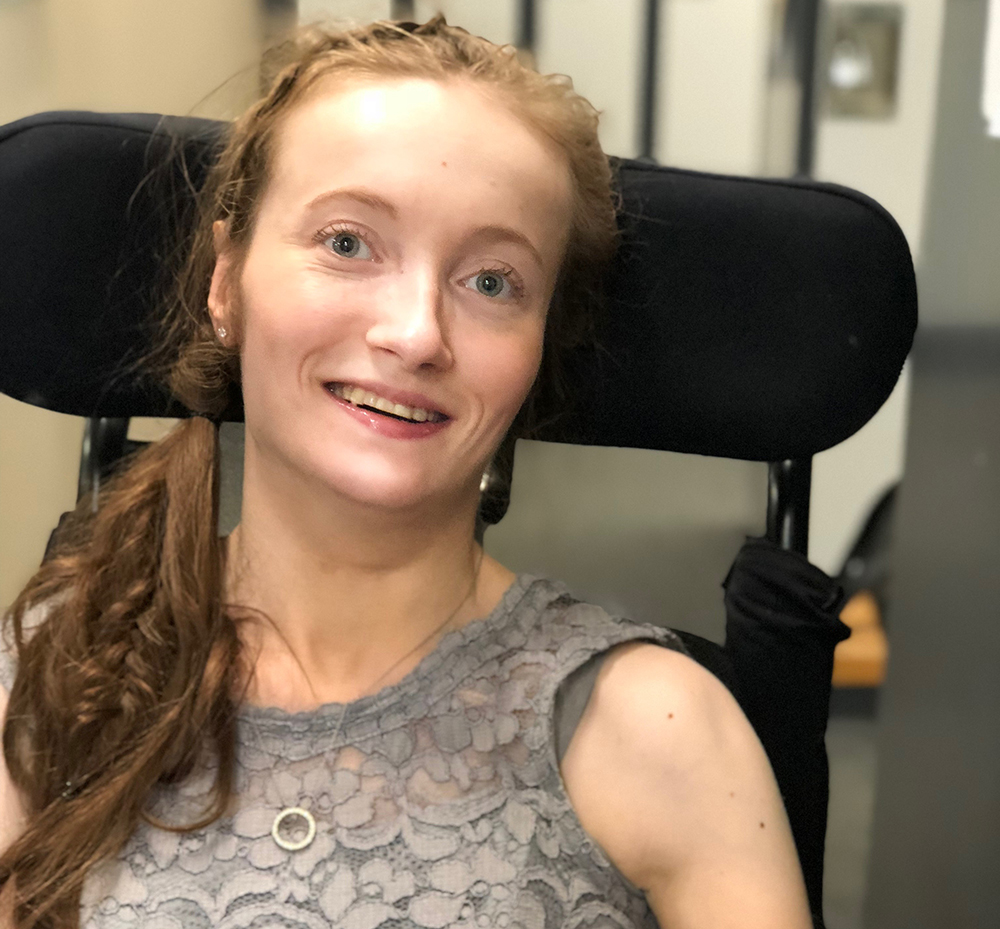
It was a tough lesson in injustice when Danielle Otto had to kick off her career in law by taking legal action.
Danielle was part of the 6,000 students who won a case against the Law School Admission Council, which previously denied persons with disabilities extra time completing its standardized test, the LSAT.
Unfortunately, she’s gotten used to getting nothing done without a fight.
“I don’t struggle academically, but I definitely struggle with the system,” says Danielle, a second-year law student with visual impairment and difficulty with fine motor control. “If you don’t have a fighting personality, it’s pretty hard to accomplish much of anything.”
In fact, since graduating high school and choosing to live on her own, the battles have gotten even more tedious and mundane: “it’s a situation of fighting to go to the bathroom enough times a day,” says Danielle.
Qualifying for only 43.25 hours of assistance in the home per week, Danielle has to pay for a private service to help her when she’s out of the house – for instance, when she’s interning at the Public Interest Law Centre for the summer. Though something as simple as going to the bathroom takes about 15 minutes – she’s charged for a minimum of two hours per instance, which costs $65. The province subsidizes about 65 per cent of this cost, but at $20 per bathroom break, the costs run up.
“I know a lot of people just don’t eat or drink during the day, but that’s not a sacrifice I’m willing to make,” says Danielle.
In order to work, Danielle fought for self-managed hours, which enables her to hire private help outside of the home. She experienced resistance to her inconsistent lifestyle from these agencies, because the services available to her are intended for much older individuals.
“It really sucks to be like, ‘Sorry work, I can’t come because my staff didn’t show up.’ It can make me seem like a flake, but it’s for reasons that I can’t control at all.
“The system is not premised on ‘How can we help Danielle be her best?’ It’s ‘What is Danielle incapable of doing, and what is the minimum level of support we can provide to make that happen?’ The system is so stringent it makes it really challenging to be where I need to be, and do what I need to do.
“I’m left to kind of struggle and figure it out.”




